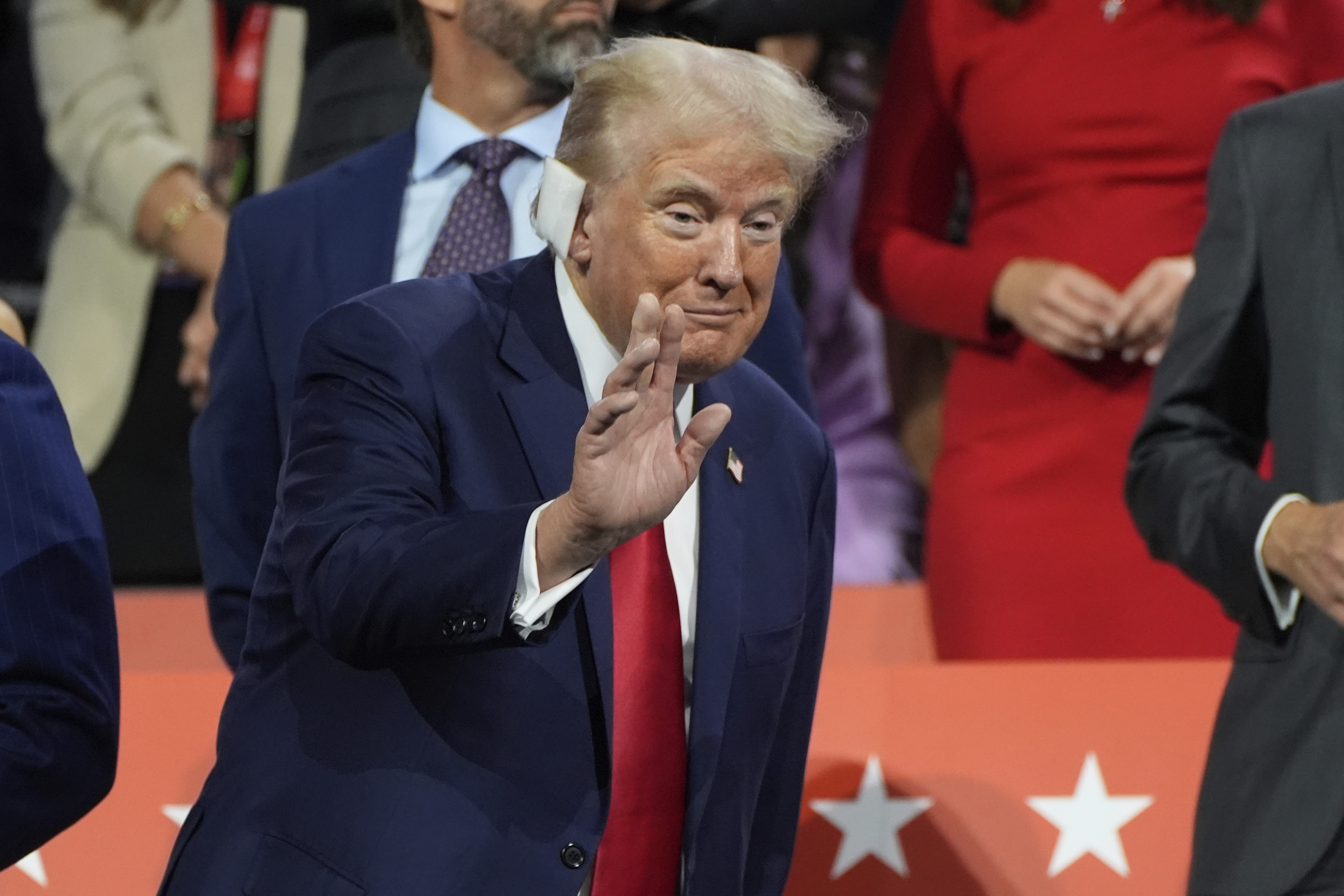Just a few minutes after nine o'clock in the evening (local time), wearing a blue suit and a red tie for the occasion, with a very serious expression, fist raised and a large bandage on his right ear, former President Donald Trump appeared in public for the first time last night after the attack that nearly cost him his life on Saturday.
Breaking tradition, he appeared in the last session of the day to close the first day of the National Convention of the Republican Party held in the city of Milwaukee, Wisconsin, one of the battleground states that will decide the elections. He appeared just 51 hours after being evacuated with blood from the rally in Pennsylvania, surrounded by over a dozen Secret Service agents, with Lee Greenwood's God Bless America playing in the background and his children applauding from the stands.
He stayed for a little over 50 minutes, with two or three interventions, including a particularly long one from the leader of one of the country's major unions, invited for the first time in history to the party's major event, traditionally more aligned with the employers, who described him as a "tough son of a bitch" in the most colloquial, affectionate, and laudatory sense. With that, he left somewhat more animated, greeting and even approaching the audience, much to the dismay of his security team.
Undoubtedly, it was the most anticipated and special moment of the day, far surpassing the announcement that Senator J. D. Vance will be his vice-presidential candidate if he wins. Although not confirmed until the afternoon, tens of thousands of delegates and supporters patiently waited, crowding the main venue of the stadium where the Bucks of the NBA play, hoping to see, cheer, and applaud the candidate, the idol, the former president who was a victim of an attack. Normally, the presidential candidate only appears alongside the vice-presidential candidate on the third night of the week.
Trump entered solemnly, with a stern expression, greeted, and went up to the area where VIPs awaited him, starting with Tucker Carlson, the former Fox presenter and the first person to shake his hand. Also present were some senators, governors, Vance himself, and some visibly emotional family members.
However, Trump was not his usual self, the one of grand events and rallies. He seemed distracted, very pensive, smiling with effort at the constant praise from the audience and speakers. There was no enthusiasm, no excitement, but rather fatigue, both physical and likely emotional. Few words were spoken, a few exchanges with his inner circle, and greetings to fans in the distance, chanting "USA, USA" and "fight, fight, fight."
Surveys favor him, enthusiasm is on his side, a Florida judge dismissed one of the most dangerous legal cases against him, and money is starting to flow in at a faster pace than his rivals. Elon Musk, for example, will contribute up to $45 million from his own pocket every month to fund what is known as a Super PAC, a vehicle that allows bypassing individual limits for campaign financing. As reported by The Wall Street Journal last night, he will do so alongside some millionaire friends of his, such as Joe Lonsdale, one of the founders of Palantir Technologies (one of guru Peter Thiel's companies, one of the key figures funding the conservative revolution), or the Winklevoss brothers, who after a famous battle with Mark Zuckerberg over Facebook, made a fortune with cryptocurrencies.
Although he is the richest man on the planet, with over $250 billion, the donation amount is astronomical. Political contribution figures are not always known, but the largest known donation for the November elections was around $50 million, from one of banker Thomas Mellon's heirs.
